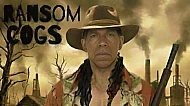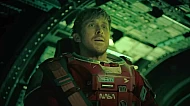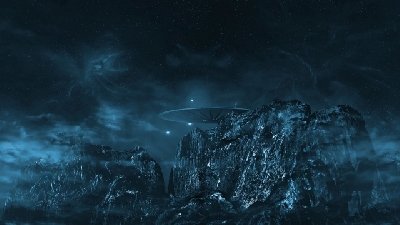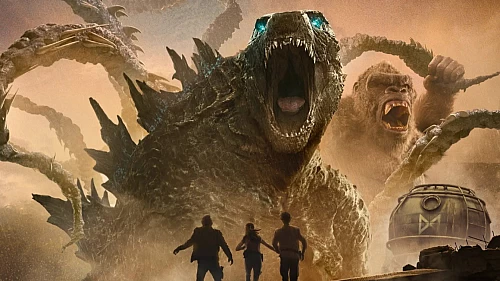Perhaps many of the things you hear in science fiction are far away from the reality. But the way things are going, everything can happen. Flying cars already exist! So, what is next? Maybe it is just a matter of time. From one moment to the other, technology can surprise. And that is why science fiction is engaging: how crazy the future seems, but also how close to reality it is.
Today you can find technological devices or gadgets that, years ago, were impossible to imagine. Some have grasped the future already, such as the science fiction writers who let their creativity fly by writing great novels. Here are some of the best sci-fi writers who, more the writers, look like prophets. Much of what they wrote is now a reality!
1. Ray Bradbury
Ray Bradbury would come to be referred to as the “poet of science fiction”. Classics such as The Martian Chronicles (1950), The Illustrated Man (1951) and The Machineries of Joy (1964) were written by him. These books are replete with metaphysical and existentialist concerns about the role of the human.
2. Isaac Asimov
His profound approaches to topics such as robotics and artificial intelligence have made Isaac Asimov one of the most renowned authors in the science fiction field. Go to https://www.casinoreviews.net.nz/ and see what Casino Dome is doing. This site is already using artificial intelligence to serve mankind. Casinoreviews.net has reviewed it and discovered a space-age casino with a stunning futuristic theme. Step into the future and play at an immersive casino with a utopia theme! It also offers various promotions on a weekly and monthly basis.
3. Arthur C. Clarke
His futuristic books have been an inspiration to many other authors and even film directors such as Stanley Kubrick. The filmed adaptation of 2001: A Space Odyssey, produced and directed by Kubrick, is considered one of the best science fiction films of all time. Click on https://www.scified.com/movie/2001-a-soace-odyssey and watch the trailer!
4. Jules Verne
His books inspired many members of the scientific community. Jules Verne was for a long time venerated as the “absolute master of science fiction”, but today’s generations, who have witnessed the conquest of space and of the ocean pits, have promoted him as an “avant-gardist and visionary”.
5. Kim Stanley Robinson
He is another author who is part of the select group of science fiction writers who have won the most important literature awards within this genre. The Mars trilogy is one of his most famous works, which was very well received by the audience.
6. Octavia E. Butler
Octavia E. Butler is one of today’s famous science fiction writers thanks to the social and political issues she dealt with in each of her novels. Her concerns about issues including climate change and the pharmaceutical industry have greater impact now than when she wove them into her work.
7. Margaret Atwood
This science fiction author has gained immense popularity in the last few years thanks to the television series The Handmaid’s Tale, inspired by her novel. Like other science fiction authors, her novels deal with social issues, still present in modern society, but from a feminist perspective in.
8. H. G. Wells
G. Wells is one of the most important science fiction writers ever. When it comes to being influential, arguably nothing even comes close to the imagination of this sci-fi writer. Find out which of his books is the most powerful by clicking on https://bookriot.com/the-most-influential-sci-fi-books-of-all-time/.
9. J. G. Ballard
Two of the best filmmakers, Steven Spielberg and David Cronenberg, were the only ones who dared to bring the world of this writer to the big screen. Alert: David Cronenberg caused hysteria with his take on J. G. Ballard’s novel about car crash fetishists.
10. Philip K. Dick
Philip K. Dick is one of the most celebrated science fiction authors of all time. In his most famous novels, the world around the protagonists breaks down when they themselves begin to doubt their existence: what they are, what they are made of and, in general, what is the lowest common denominator that all humans possess.

The Sun is dying and Ryan Gosling is our only hope – New Project Hail Mary featurette!
New promotional video for Project Hail Mary details the film's plot outline and Ryan Gosling's role.

Sci-Fi Steampunk Western series Chrome Bounty Unveils First Look at Raw Leiba as the Gritty Outlaw Ransom Cogs
ALBUQUERQUE, NM – Production is heating up for the highly anticipated sci-fi steampunk Western series, Chrome Bounty, as producers reveal a firs...

Project Hail Mary (2026) sneak peek debuts new footage from the movie!
Ryan Gosling gives us a sneak peek of Project Hail Mary during the Winter Olympics, showcasing new footage!

Final trailer for Project Hail Mary – the Ryan Gosling sci-fi movie has landed!
Ryan Gosling must work with an intelligent alien creature to devise a way to save Earth from destruction!

What’s Next For The Alien Franchise?
Explore what’s next for one of the world’s most successful franchises in Alien – movies, tv shows, games and more.


